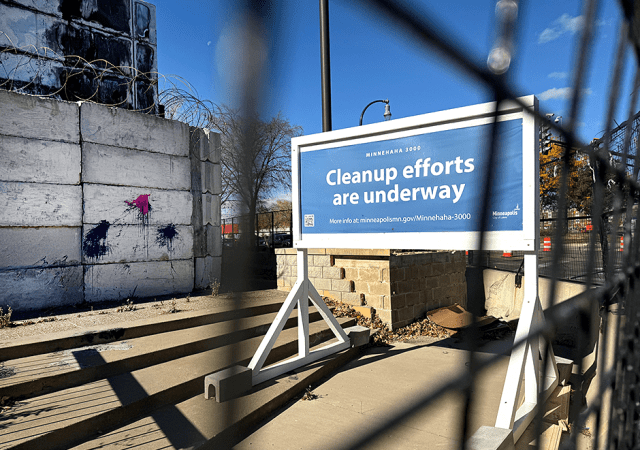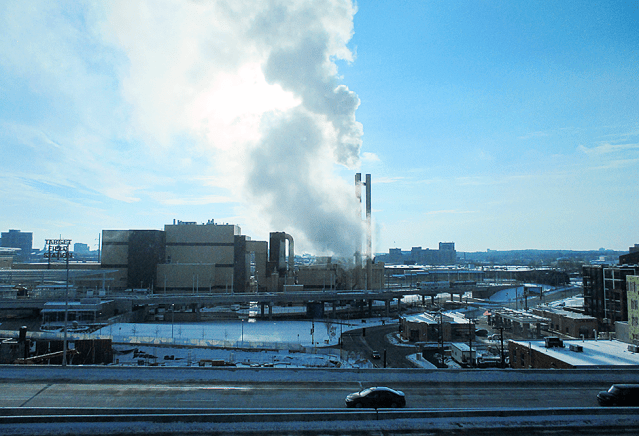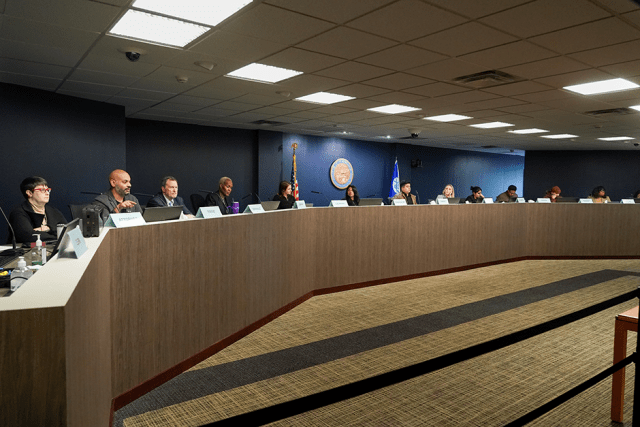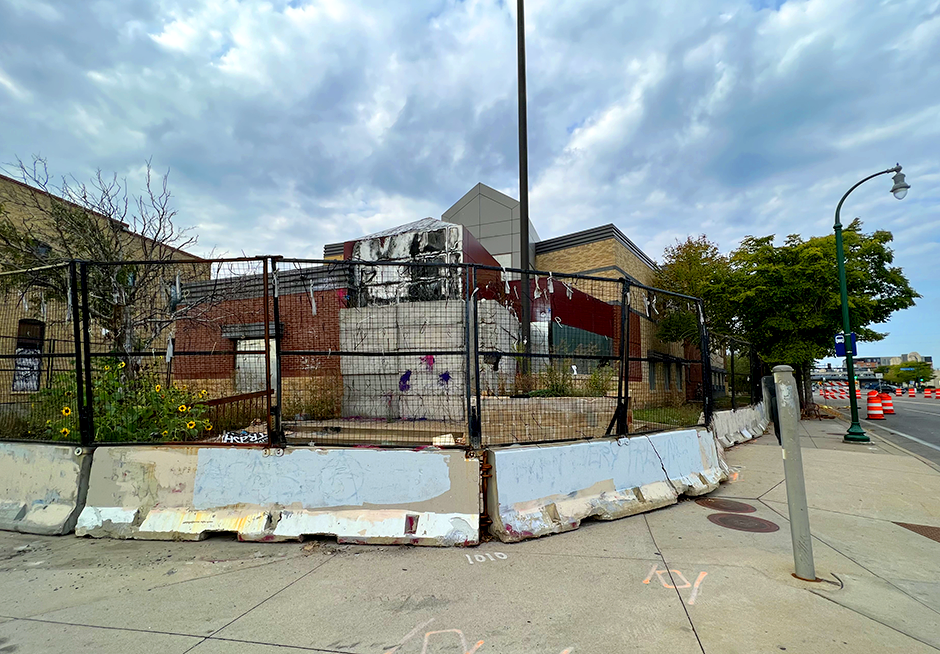Ya’ll, it’s been a long year.
Ever heard of news fatigue? If not, congratulations. Simply being here today means you likely don’t have it as bad as many of your peers.
And, look: I get it. There’s a lot going on. All. The. Time. It’s too much. It’s hard to stay on top of everything, moving from one headline to the next, while also being interrupted by animal videos, makeup demo reels and home improvement tips. Local news is also often overshadowed by global and national news, especially as President-elect Trump is inaugurated for a second time in a few weeks.
The endless news cycle never stops. With that in mind, here’s a look back at some ongoing local stories from 2024 (that many of us have already forgotten about) to keep an eye on going into 2025:
The Uber and Lyft debacle
Controversy over rideshare driver pay first heated up in 2023, when Gov. Tim Walz vetoed a bill with wage and work rules for rideshare drivers. Minneapolis took things into its own hands in March 2024, passing a minimum wage ordinance. Then, the Legislature stepped in with its own statewide standard rates for rideshare companies, including the national duopoly Uber and Lyft. The final law passed in the mega 1,400-page omnibus bill on the last day of the legislative session included preemption, which means cities now cannot set their own rideshare rates in Minnesota.

As of Dec. 1, the new rideshare minimum pay rates are $1.28 per mile and 31 cents per minute.
Many alternative rideshare companies to Uber and Lyft looked to launch in their place as the two companies threatened to leave the Twin Cities and state if minimum rates increased. The two major companies didn’t leave, but some alternative rideshare companies remained.
Deciding what to do with the Minneapolis former third precinct
This year marked the fourth year since the former Third Precinct was barricaded and fenced in with barbed wire amid the civil unrest following the murder of George Floyd. As of this fall, the barbed wire has come down. However, this year marked continued debate between Mayor Jacob Frey’s administration and the Minneapolis City Council over what to do with the former police station.

In 2023, the council decided police would not return to the site. Now, the city wants to turn the building at 3000 Minnehaha Ave. into a democracy center. The center would permanently house the city’s election and voter services department in its second floor office space. However, the City Council did not give its stamp of approval for this plan earlier this year. Instead, the majority of council members want to see further public outreach before a decision is made.
As debate continued, the property became political fodder for politicians, including Vice Presidential candidate JD Vance, who used the barbed wire and barriers around the site as a backdrop for a pre-election news conference.
Historic flooding
After a few years of drought conditions, this year Minnesota had one of its wettest years on record. When the Rapidan dam in southern Minnesota partially failed in June due to historic flooding across the upper Midwest, the precarious state of dams across the country and state was thrust into the spotlight.

As extreme weather conditions due to climate change are anticipated to become more common, more stress will be put on infrastructure across the state like culverts under roads, bridges, dams and even roadways, according to Paul Jackson, professor of chemistry and environmental studies at St. Olaf College.
Hennepin County pressured to expedite closure of HERC incinerator
The Minneapolis City Council wants the Hennepin Energy Recovery Center (HERC) incinerator closed by 2028, and Mayor Jacob Frey has gone as far as to say that he would like the county to close the HERC by 2027.

The council passed a resolution urging the county to close the incinerator on this timeline. In response, Hennepin County has asked Minneapolis to come up with a plan for how it will handle the city’s trash following the HERC’s closure. In its resolution, the city council pledges to increase city-led waste-reduction efforts and to explore landfills that could receive city trash if the county shuts the incinerator down.
The fall of Smith Foundry
Smith Foundry, a metal processing plant in Minneapolis’ East Phillips neighborhood, closed in August of this year after reaching a settlement with the EPA that barred the facility from operating as a foundry. The closure came after the foundry was cited for Environmental Protection Agency violations including violating the Clean Air Act for five years.
The public first learned of these violations after they were reported on by Sahan Journal last November. In a request for emails from August of last year when the violations were filed, through November after the story broke, Sahan uncovered that Smith Foundry was not equipped to respond to public concerns about its operation.
Minneapolis Carbon Emissions Fees
Minneapolis carbon emission fees will be applied next year, but this will start later than the Minneapolis City Council originally planned. The timeline for the implementation of these fees changed after a veto by Minneapolis Mayor Jacob Frey. In his veto, the mayor wrote that the intended timeline the council proposed simply could not be done legally.

The council ultimately overrode the mayor’s veto. But it was an amended version — modified in a way Frey’s office said would make it possible for the city to legally implement. Specifically, they extended the fee’s implementation date from Jan. 31 to July 1. The council also brought forward an ordinance to establish a funds system within the city’s health department.
Minneapolis School’s technology tax
In November, Minneapolis voters approved an increase to a Minneapolis Public Schools technology levy. Voters passed a $20 million increase that will bring the levy to a total of $38 million over the next 10 years. The initiative was approved 66% to 34%. This increase comes after a year of tough budgeting on the part of MPS. In a Q&A with MinnPost earlier this year, Superintendent Lisa Sayles-Adams said the levy would be a “big part” of the district’s coming budget strategy.
School officials have said the original levy does not cover all of the district’s technology expenditures and that the district has pulled from its general fund in the past to offset that. With an expanded tax, the district says it can use the general fund dollars otherwise used on technology for other purposes, including operations.
St. Paul voters move local elections to even years, deny early child care tax
This year, St. Paul voters voted to move local elections to even years but voted against a referendum that would have given the mayor the ability to employ an early child care tax.
The move to even-year elections will not be applied until 2028, but this will be a major change that some election officials fear will impact the city’s ability to have ranked-choice voting. A law concerning optical scanning equipment, the most commonly used election tabulation tool, says only a single ballot card can be used at the polls. But this doesn’t completely eliminate the ability for ranked-choice voting to be included on even years; it just makes it more difficult to do so.
A 2017 report by a Minneapolis city attorney also outlined this paradoxical nature of current law, concluding it would be particularly difficult to have ranked-choice voting on even years. This legal gray area could be remedied if St. Paul moved to the latest touch screen technology on the market for polling places.
Even if voters had passed the early child care tax on the ballot, Mayor Melvin Carter had said he would not have implemented the levy increase. Carter said the ballot language was misleading because the amount of money raised by the levy wouldn’t be enough to cover everything outlined in it for all low-income families.
What issues and stories would you like MinnPost to look into in 2025? Feel free to email me wkeefer@minnpost.com and let me know.

Winter Keefer
Winter Keefer is MinnPost’s Metro reporter. Follow her on Twitter or email her at wkeefer@minnpost.com.





